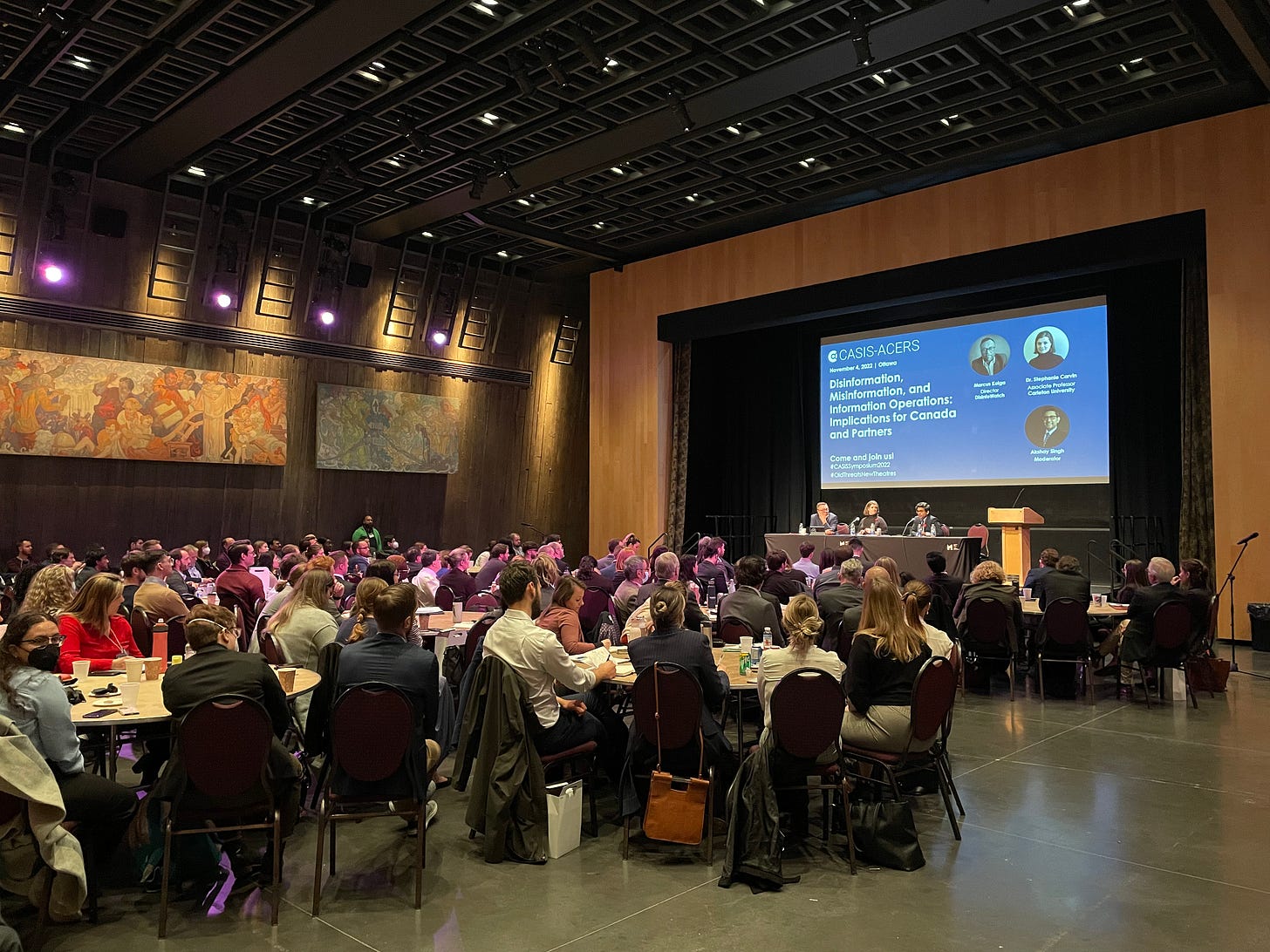This fall, come to the premier Canadian security and intelligence conference in Ottawa, a full day of discussions on security and intelligence issues in Canada. Space is limited!
Disorder at the Gates - Canada’s Role In A Fragmenting World
We will have four panels, a keynote address from Michael Kovrig, presentations by our student essay contest winners, and a special “history of CASIS” presentation to mark our 40th anniversary.
Our panels include:
Economic Security
Canadians are increasingly paying attention to economic security threats and international trade relationships as external shocks threaten to impact our prosperity and competitiveness. In this panel, we will discuss what "economic security" means as well as the primary challenges to being secure. Issues discussed in this panel will include: Is there any reason to distinguish between "economic security" and "national security" in today's discourse? How do Canada and like-minded countries build resiliency and mitigate short-term disruptions to its economic security? What role does intelligence and information sharing play in maintaining economic security, for example, in mitigating risks related to foreign investment? What are some risks "on the horizon" we should be thinking of? How do we remain innovative and competitive on the global stage in an era of increasing uncertainty?
Crime and National Security
In an era of geopolitical fragmentation, the lines between organized crime and national security are increasingly blurred. This panel will examine how states exploit criminal networks to advance their strategic objectives—whether through targeted assassinations, transnational repression of diaspora communities, or covert influence campaigns. At the same time, powerful criminal organizations have evolved beyond traditional illicit enterprises, amassing economic and political influence that threatens state sovereignty and stability. From cartel violence undermining governance to cybercriminal syndicates disrupting global financial systems, these entities are no longer just a law enforcement problem—they are a national security threat. This discussion will explore the evolving nexus of crime and statecraft, the implications for Canada, and how policymakers must adapt to this complex threat landscape.
Lone Actors vs Collective Actors
This panel features perspectives from a sociological, psychiatric and legal lens about what makes, drives, and maintains extremist actors ranging from those who act alone, in concert with others, and/or in the name of a terrorist organization. Panelists will discuss the latest trends about the prevalence of lone versus collective actors on the spectrum of extremism in Canada and across the world. Discussions about grievances, as understood from a psychiatric and sociological perspective, will inform questions around “why” people radicalize, what drives radicalization to violence, how we measure the risk of radicalization using actuarial tools, and how early interventions can make a difference.”
Intelligence Relationships
The new world disorder is causing nations to re-examine relationships and alliances that have historically contributed to international stability. This panel will consider how Canada’s intelligence relationships been affected by this disorder and how they might be impacted in the future. Can existing partnerships be relied upon to continue to provide the quality and quantity of information required by Canada? Is there a need to consider the establishment of new intelligence relationships? To whom should Canada turn to fill the void created by the possibility of a withdraw from long established relationships? As Canada seeks new business relationships, do they present opportunities for new intelligence partnerships? What are the risks and opportunities for Canada?
The full schedule is available here.
We hope you will join us and help advance awareness about security and intelligence in Canada!
© 2025 Insight Threat Intelligence Ltd. All Rights Reserved.
This newsletter and its contents are protected by Canadian copyright law. Except as otherwise provided for under Canadian copyright law, this newsletter and its contents may not be copied, published, distributed, downloaded or otherwise stored in a retrieval system, transmitted or converted, in any form or by any means, electronic or otherwise, without the prior written permission of the copyright owner.



